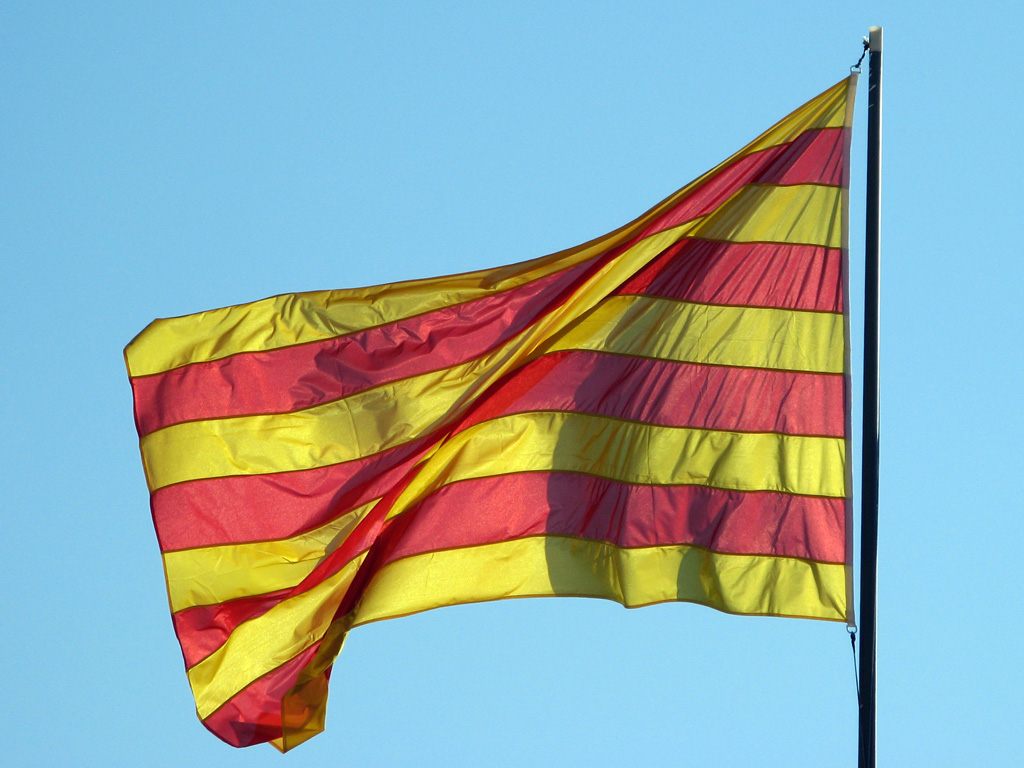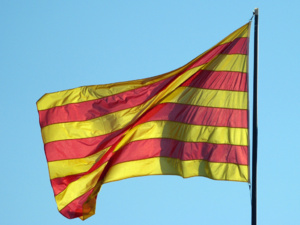72 deputies voted for the resolution in support of the independence of Catalonia, against - 63. In the first category were the representatives of the coalition Junts pel Si (“Together - in support of “yes”) and the party "Popular Unity Candidacy".
The document proclaimed beginning of the process of establishing an independent state with a republican form of government." This process should be completed in eighteen months. During this time, it is planned to create a variety of government agencies to develop additional legislation and text of the constitution of the independent Catalonia. Supporters of independence from Madrid are going to hold mass rallies in support of the resolution in the evening.
The Spanish government led by Prime Minister Mariano Rajoy warned earlier that they intend to block any attempt at unilateral declaration of independence. After the vote, Mr. Rajoy made a special appeal, in which has promised to use "all legal mechanisms" to deal with the Catalan initiative. "The majority of Spanish society is united in the face of this threat (collapse of Spain), a large part of society is asking us to protect the unity of the country", - the prime minister said, promising also to "protect and preserve democracy in the whole of Spain."
An extraordinary meeting of the Council of Ministers of Spain is expected to be held on Wednesday to decide on filing a claim to the Constitutional Court. Also on Thursday, judges will certainly support the position of the central government, which is that the Spain's basic law does not provide unilateral declaration of independence.
However, the resolution adopted by the Parliament of Catalonia highlighted the opportunity not to obey the decisions of the Constitutional Court. This could theoretically lead to a sharp increase in confrontation between Barcelona and Madrid. As a last resort, there may be applied a measure at which, if necessary, the central government may introduce direct administration in the Spanish autonomous regions, depriving them of most of the rights at the time.
Catalan separatists launched the most serious attempt to achieve independence in 2014, when they tried to hold a referendum on the subject. Constitutional Court blocked the attempt, but still informal vote took place. More than 80% of the participants were in favor of the independence of the region, but it is worth considering that most of its residents simply ignored the referendum - the turnout was only 37%. Spanish authorities have called the informal referendum "useless exercise" and categorically rejected any possibility of "civilized divorce".
Catalan regional elections were held September 27 this year, won by supporters of independence. Branch Region of Madrid was their key election promises.
source: bbc.co.uk
The document proclaimed beginning of the process of establishing an independent state with a republican form of government." This process should be completed in eighteen months. During this time, it is planned to create a variety of government agencies to develop additional legislation and text of the constitution of the independent Catalonia. Supporters of independence from Madrid are going to hold mass rallies in support of the resolution in the evening.
The Spanish government led by Prime Minister Mariano Rajoy warned earlier that they intend to block any attempt at unilateral declaration of independence. After the vote, Mr. Rajoy made a special appeal, in which has promised to use "all legal mechanisms" to deal with the Catalan initiative. "The majority of Spanish society is united in the face of this threat (collapse of Spain), a large part of society is asking us to protect the unity of the country", - the prime minister said, promising also to "protect and preserve democracy in the whole of Spain."
An extraordinary meeting of the Council of Ministers of Spain is expected to be held on Wednesday to decide on filing a claim to the Constitutional Court. Also on Thursday, judges will certainly support the position of the central government, which is that the Spain's basic law does not provide unilateral declaration of independence.
However, the resolution adopted by the Parliament of Catalonia highlighted the opportunity not to obey the decisions of the Constitutional Court. This could theoretically lead to a sharp increase in confrontation between Barcelona and Madrid. As a last resort, there may be applied a measure at which, if necessary, the central government may introduce direct administration in the Spanish autonomous regions, depriving them of most of the rights at the time.
Catalan separatists launched the most serious attempt to achieve independence in 2014, when they tried to hold a referendum on the subject. Constitutional Court blocked the attempt, but still informal vote took place. More than 80% of the participants were in favor of the independence of the region, but it is worth considering that most of its residents simply ignored the referendum - the turnout was only 37%. Spanish authorities have called the informal referendum "useless exercise" and categorically rejected any possibility of "civilized divorce".
Catalan regional elections were held September 27 this year, won by supporters of independence. Branch Region of Madrid was their key election promises.
source: bbc.co.uk






